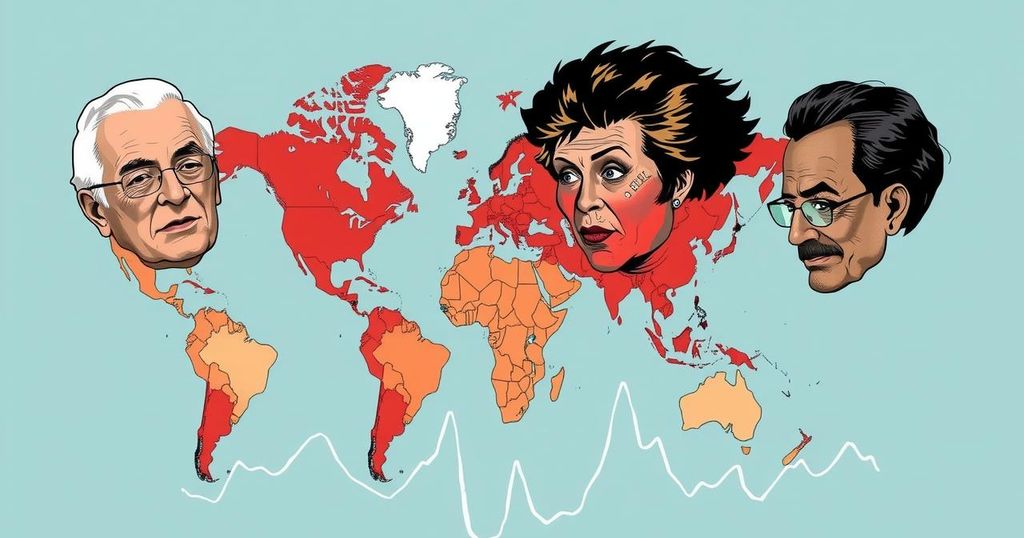In 2024, global elections indicated a widespread dissatisfaction with incumbents, driven by economic instability and social unrest. High-profile losses occurred in major democracies, with voters increasingly favoring radical change. The rise of far-right parties posed challenges to established political structures, amid concerns of foreign interference and the integrity of electoral processes. As the year concluded, the landscape for democracy appeared increasingly precarious, setting the stage for continued scrutiny in 2025.
As 2024 drew to a close, elections across approximately 70 nations highlighted a notable trend: widespread rejection of incumbent administrations. A phenomenon termed “electoral long COVID” reflects discontent stemming from residual emergency effects, including pandemic-induced economic and social disruptions. Historically rooted parties experienced significant losses, exacerbated by global conflicts and rising inflation. In countries such as India, the United Kingdom, and Japan, established ruling parties faced substantial setbacks, with voters increasingly gravitating towards new and sometimes radical options. This election cycle also amplified the visibility of far-right parties, posing a challenge to democratic stability worldwide. Additionally, allegations of foreign interference, disinformation campaigns, and the complexities of coalition governments played crucial roles in shaping electoral outcomes. Amidst these shifts, the global landscape appears increasingly fragmented, leading to persistent challenges for democracy heading into 2025.
The year 2024 marked a significant moment for global democracy as numerous nations held elections, fundamentally altering political landscapes. A sense of dissatisfaction with incumbents drove voters to lose faith in traditional parties, influenced by ongoing crises such as economic uncertainty amid high inflation. The aftermath of the COVID-19 pandemic has exacerbated public discontent, leading to increased support for populist and far-right parties. While these elections express a desire for change, they also reflect a concerning trend for the stability of democratic processes. Furthermore, the growing impact of social media misinformation and foreign meddling has raised alarms regarding the integrity of these democratic systems.
In summary, the tumultuous electoral climate of 2024 illustrates a growing rift between voters and traditional democratic institutions. As incumbents across multiple nations face unprecedented challenges, dissatisfaction seems to overshadow the foundational principles of democracy. The ascendancy of far-right groups, along with allegations of international interference, complicates the reestablishment of trust within political systems. Looking ahead to 2025, these dynamics may further reshape governance across many regions, with citizens yearning for more accountability and effectiveness from their leaders.
Original Source: www.seattletimes.com






